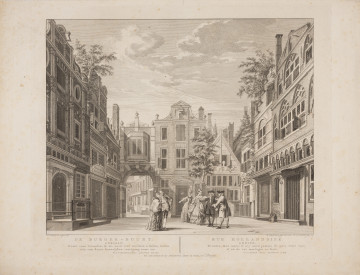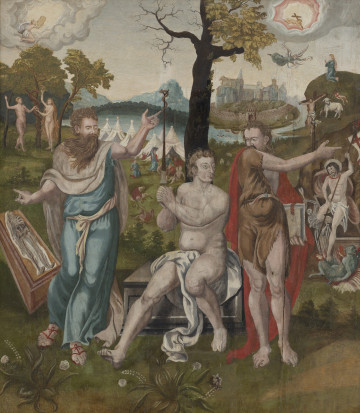
Wrota (Drzwi) | Gates (Door)
1996
National Museum in Szczecin
There are at least two important moments in everyone's life: birth and death. Apart from these, there are many other moments that we celebrate solemnly, such as christenings, engagements or weddings. In different religions, but also in different countries or regions, these may be celebrated differently. The natural rhythm of our life is bidding farewell to one period and welcoming a new one, and moving from one stage to the next. This is accompanied by very interesting rituals, which you are about to learn!
Ritual – all visible behaviours and activities associated with a particular celebration; these are usually perpetuated by tradition and have their own meaning. Rituals are very often associated with a particular religion.
Custom – a way of behaving in a given situation that is accepted by a particular group; failure to follow it would be viewed unfavourably by that group. Customs are an element of tradition handed down from generation to generation and, therefore, change very slowly. For example, in many religions, customs indicate what clothes we should wear in a temple – whether we have to cover our heads or take off our shoes. Those who violate such a custom may be requested to leave the place.
Parchment – a thin material on which we write; made from animal skin.
Synagogue – a place of meeting and prayer for the followers of Judaism, i.e. Jews.
Nobility – in the former Commonwealth, it was a social group which enjoyed many privileges. A nobleman, i.e. a representative of the nobility, owned land and his children could inherit it from him.
Torah – the sacred book of Judaism, the religion practised by Jews. Also called the Pentateuch, because it consists of the first five books of the Bible, called the Books of Moses (in the Christian tradition these are: Genesis, Exodus, Leviticus, Numbers and Deuteronomy).
Practice – a way of behaving in a given situation that has been adopted by a particular group; however, failure to observe it does not result in any serious consequences. Practices are an element of tradition passed on from generation to generation. For example, nowadays it is still considered customary to let a woman pass through a doorway, although no one requires men to do so any more. Practices also change slowly over time, as the above example shows.
Jews – followers of the religion known as Judaism; for centuries they settled in many places around the world, including Poland. In 1948, the state of Israel was established, where many Jews live.
Znaleziono 0 obiektów

1996
National Museum in Szczecin

1775
National Museum in Szczecin

circa 1567 — 1600
National Museum in Szczecin
DISCOVER this TOPIC
National Museum in Lublin
DISCOVER this PATH
Educational path